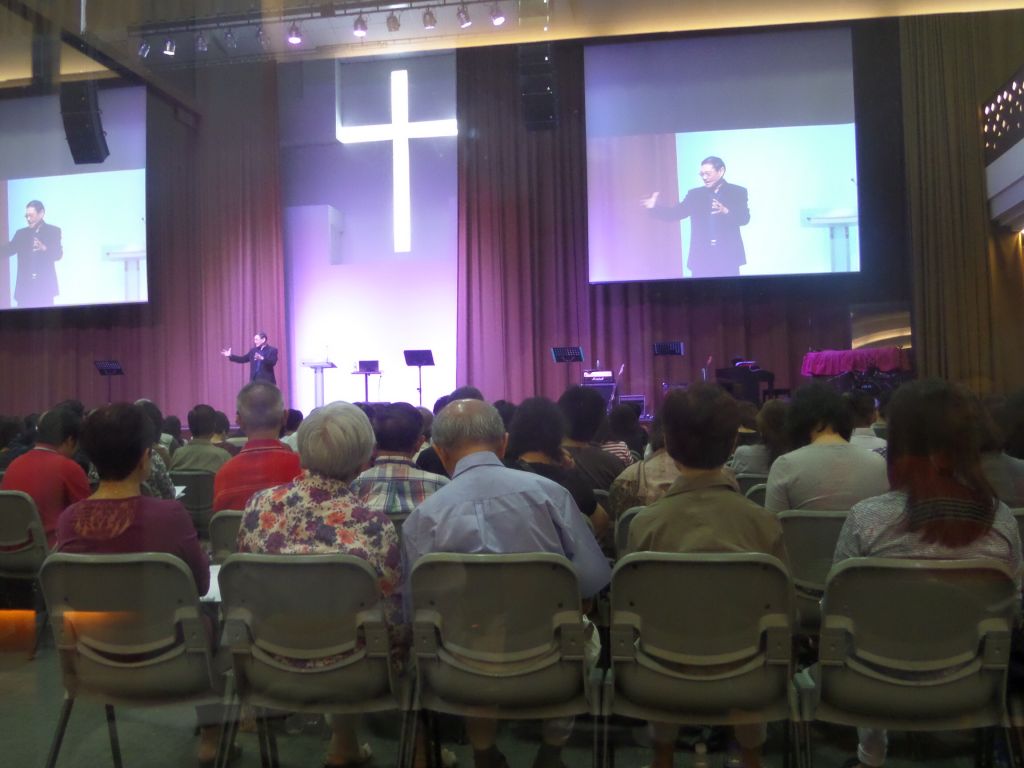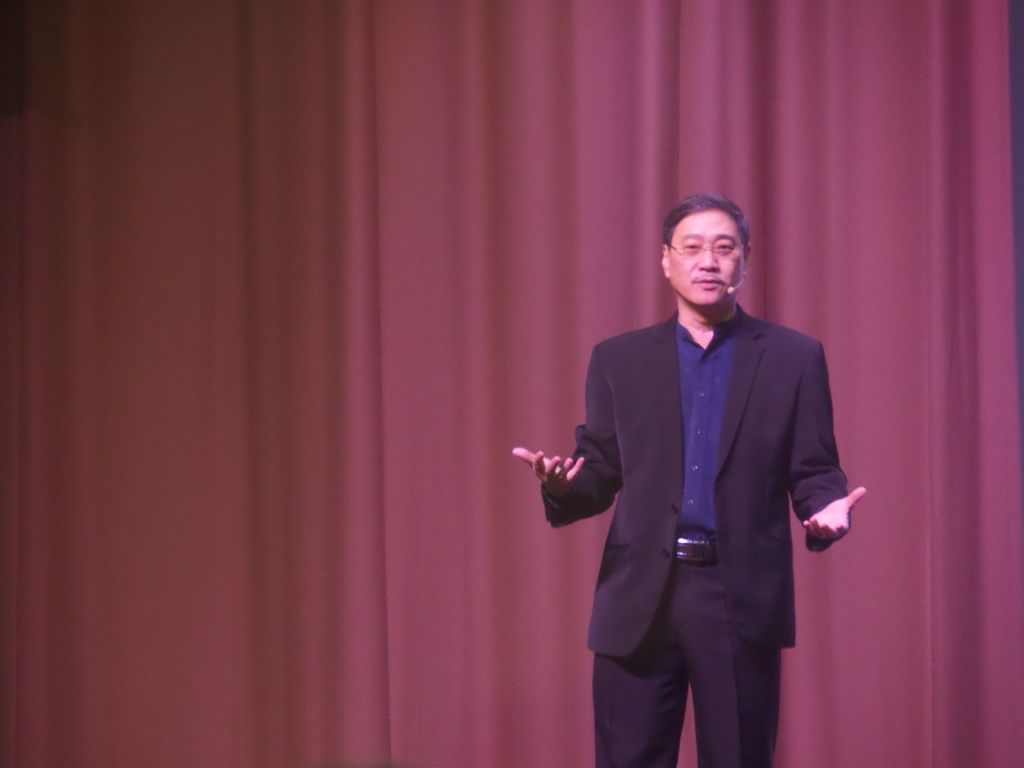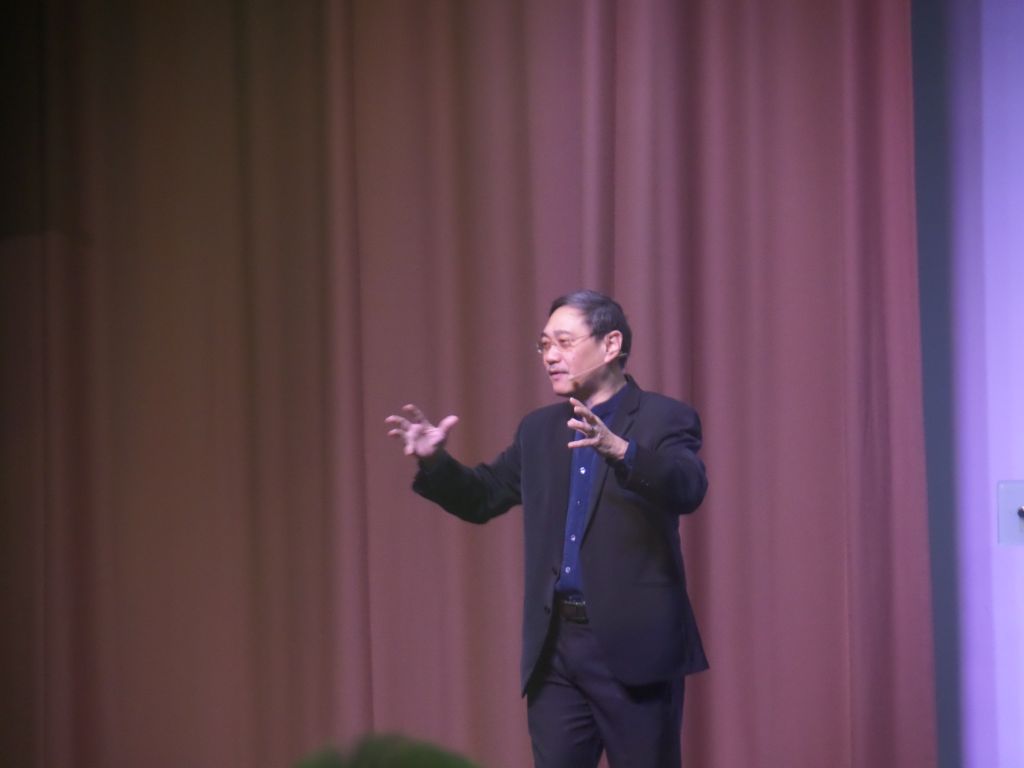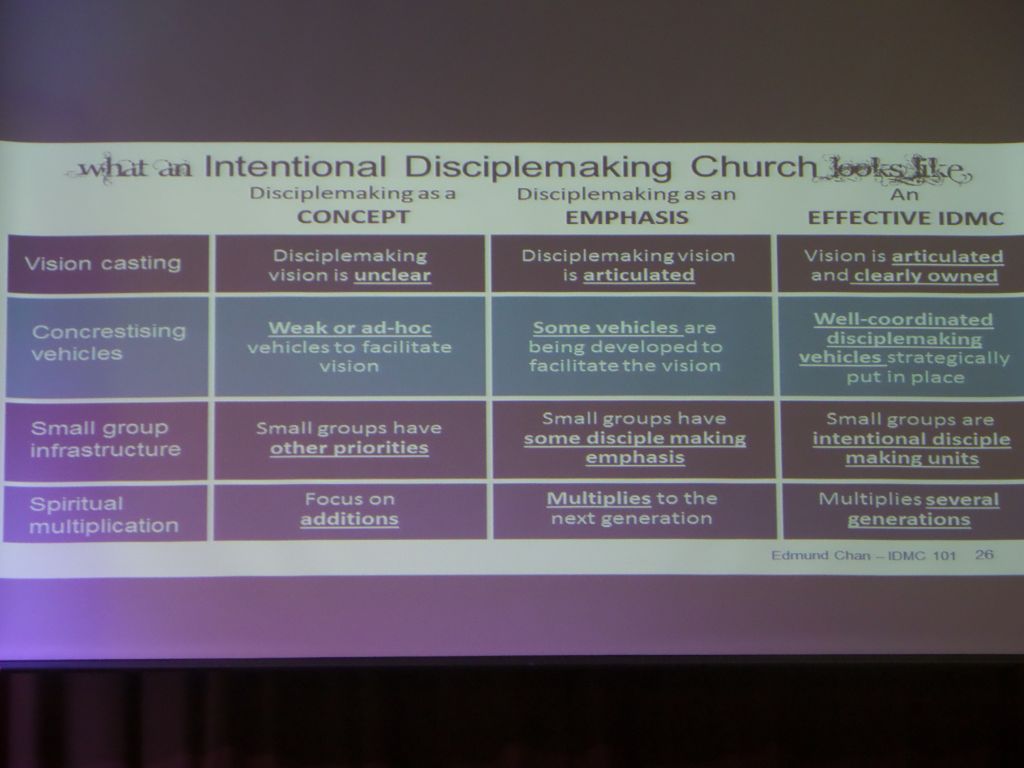
20 Feb 2015 by Jason Law CM –
Reverend Edmund Chan is a very well-known pastor and teacher in the disciple-making movement for God’s Kingdom. Last weekend, 13th-15th February 2015, he conducted a conference at Wesley Methodist Church KL in which delegates learned much about what is probably the most important subject matter for Christians today.

The overarching goal of this conference was not just to produce any kind of disciple, but to make disciples of a certain kind. In the second session, he taught about understanding the Biblical strategy for an authentic and intentional discipling process. Among issues he shared about in this session were misconceptions of the Great Commission, 4 convictions that Christians must have, and the marks of a disciple-making church.
Edmund Chan communicated that one of the major things setting churches back today is that many of us have a tendency to major on minors. Because of this, many Christians have missed the Biblical strategy. He shared 7 major misconceptions that must be set right so that we might be true to the call of Jesus in the Great Commission.
7 Misconceptions of the Great Commission
The first major misconception is missing the main focus. As humans, we mostly tend to focus on what is visible to the naked instead of spiritual eye. This has caused us to often have the wrong focus. Ultimately, it is not ‘us’ that will accomplish the Great Commission but Christ through us.
Along with the main focus, also go the main essence. The Gospel is not a message to broadcast but a life to live. It is not just an academic subject like those that were taught in school, useful only to accomplish tasks but not possessing any deep meaning to us. The Gospel and disciple-making process must reach deep down into the spirits of people and saturate their whole lives so that genuine transformations are produced.

The third misconception is missing the main agent of the Great Commission. The Commission was handed by Jesus not to some missionaries but to all members of the Church, and the main product that result must not be merely to make converts but to produce disciples of a certain kind.
What all this boils down is that we must have a correct understanding of emphasis. What matters is not the manner in which we carry out the Great Commission; it is ensuring that we stay focused on the mission and not the plans and programmes. Plans and programmes can assist the work of missions but they must always point towards the essence of the Gospel message, which must always remain central.

The true yardstick of any work of the Great Commission must not consist of numbers but on obedience. An effective church knows how to both stay faithful and produce fruits. Reverend Edmund imparted that the secret to this is to start small but build deep. Have a global vision, but not from a heart for gaining prestige, but rather building up meaningful connections to God in every part of the world. He shared that head knowledge does not change lives, but obedience. This is the greatest challenge for churches today but also the most important part of the Commission.
Primarily, the main concern of the Great Commission is in understanding the word ‘disciple’, not as a noun, but as a verb. The discipleship-making ministry is continuous and does not end the moment we bring someone to salvation. The real work comes in nurturing them so that one day they will be able to go on to disciple others. Discipleship is a process that points both upwards to God and outwards into the harvest field, instead of inward into isolative churches.
4 Convictions of the Great Commission Every Christian Must Have
Besides clearing up misconceptions about the Great Commission, Reverend Edmund pointed out that Matthew 28:18-20 tells us of 4 convictions that Jesus communicated to his disciples. For us today, these 4 convictions must still remain strong. These are:
-
The Source of the Great Commission (v18): We have all authority for the work and that authority comes from God.
-
The Scope of the Great Commission (v19): The call of the Great Commission is to go and make disciples in all nations.
-
The Strategy of the Great Commission (v20): The strategy of the Great Commission is to teach new disciples to obey all things that God has given us.
-
The Season of the Great Commission (v20): Jesus promised that He will always be with us to the end of age. The Great Commission must remain with us if we are with Christ.
8 Marks of an Intentional Disciple-making Church (IDMC)
Intentional Disciple-making Churches (IDMC) can be distinguished by having a vital heart for the Great Commission. Reverend Edmund shared 8 key indicators of a healthy disciplemaking church:

-
IDMCs are purpose-driven and disciplemaking in these churches are not just a conceptual purpose but its whole core and basis. -
IDMCs are not focused on meeting own church needs but on intentionally leading people to Christ. Intentional evangelism and conscientious follow-up are practiced.
-
Instead of ad-hoc strategies for growth, people in IDMCs are developed through intentional growth strategies. -
Leadership unity in IDMCs does not mean that the congregation must be made to agree with the leadership board, but instead the leaders are committed to model disciplemaking.

-
The disciplemaking vision and strategies in IDMCs are clearly articulated and adopted in the church. -
Concrete vehicles are developed and strategically established to facilitate the disciplemaking purposes of the IDMC. -
Small groups in IDMCs are not diverted by other priorities but are intentional disciplemaking units. -
IDMCs are not focused on addition to numbers but people’s lives are transformed and spiritual multiplication is actually taking place.
|Share The Good News|
Disclaimer: This article is written to report the content by the speaker as much as possible, according to the recording by the author. It is not comprehensive and not vetted by Wesley Methodist Church KL.




Leave a Reply